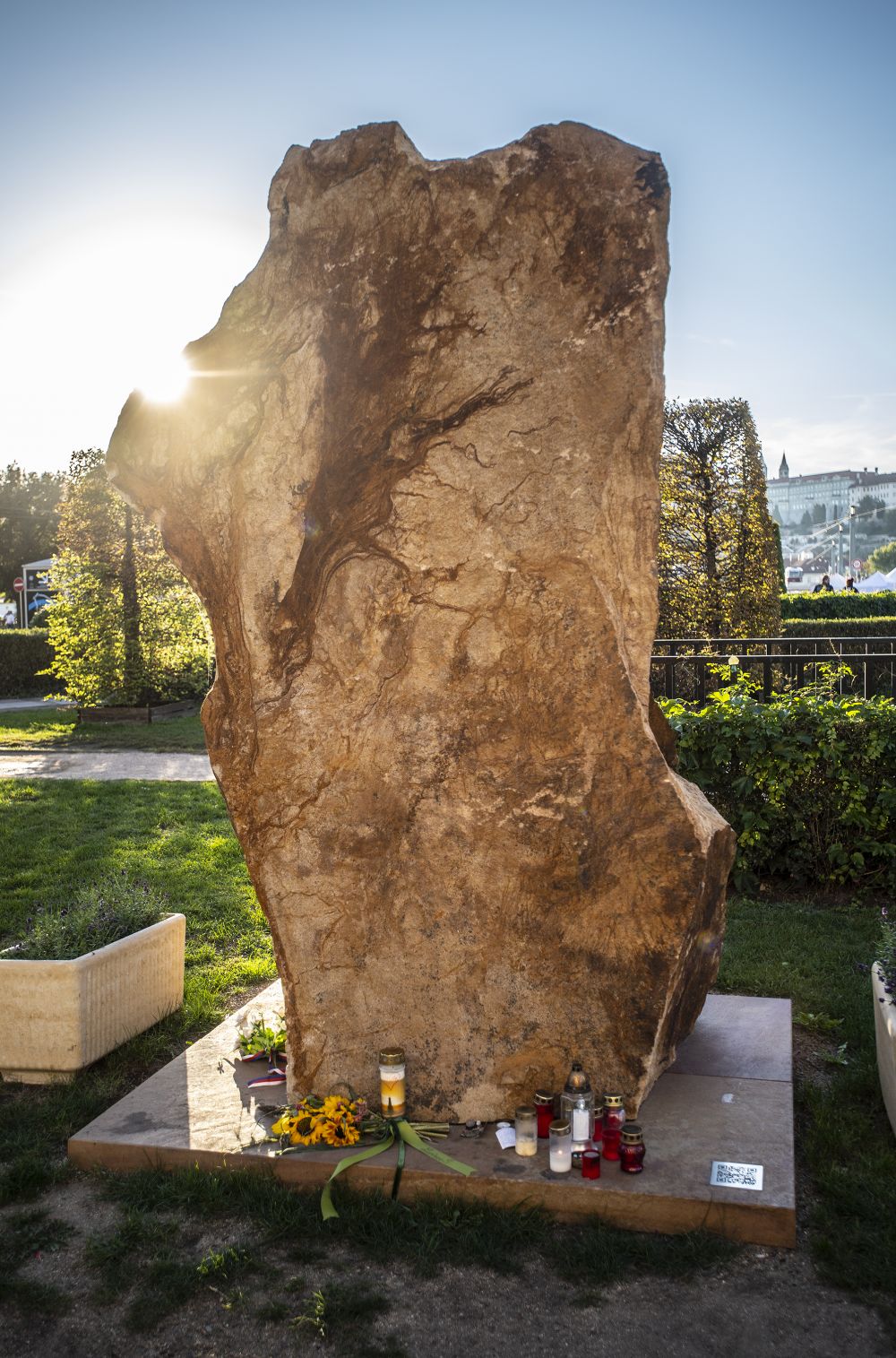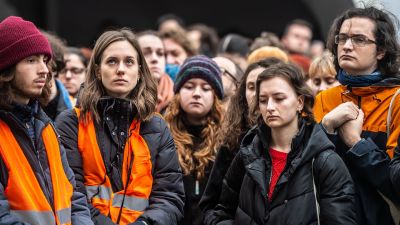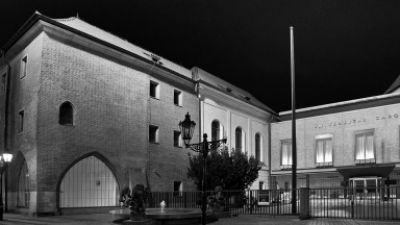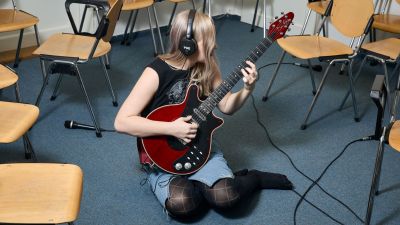The mass shooting that took place at the Faculty of Arts last December changed the university and the whole of society to the core, causing unfathomable pain and suffering for those who lost loved ones. Many others, both in the building that day and beyond, were also profoundly saddened and affected. The tragedy, at the same time, provoked a wave of solidarity and kindness. Director Marketa Oddfish Nešlehová, a graduate of Charles University, made a documentary about the healing process to air on the first anniversary on 21 December.
Why did you decide to make this documentary?
I am interested in the possibilities of the human psyche and its tendency towards a positive attitude. An act of evil occurred on 21 December. My goal was to show that, despite what happened, something new can sprout again, a new plant can grow from burnt ground – a symbolic geranium. I wanted to show that evil can never win. This is the main leitmotif of the film. We talk about 14 victims, but in fact, there are many more at the secondary or tertiary level. Thousands of people were directly affected; the tragedy resonated across the whole of society. I wanted to make a film that would act as a kind of pill to help heal both the university and the whole of our society, which had not been exposed to a horror like this in recent history. The result is Jak to, že se svět nezastavil (How is it that the World Didn't Stop)?
My documentary is a message about the depth and strength of human solidarity and kindness. The environment and culture at the faculty, the rectorate and the university as a whole was a significant factor in this. When I saw the women who were in charge, how authentic they were, and how compassionate and kind the environment at the university was, I said to myself I wanted to be part of it when the university and the bereaved were recovering, because it could bring a unique message about healing.
Another reason for me to make the documentary was the conviction that the event and the victims must not be forgotten. It was intended as a film for the bereaved, who would have the opportunity to share their feelings.
Who appears in your documentary and who did you reach out to while filming it?
My documentary follows several storylines. I wanted to be part of the changes in the atmosphere and energy at the faculty. I follow the creation of the Quiet Place (memorial at the Faculty of Arts – editor’s note), its changes and the increasing number of messages there, and the powerful meaning of the place.
The second storyline follows the story of the commemorative stone on Jan Palach Square. I thought it was important to tell its whole story, from the genesis of the idea itself to the rawness and symbolism of the monument. I also began to follow the dean and the rector in their day-to-day activities, during which they also had to deal with the impact that the event had on them. They didn’t have a team of crisis interventionists to come to their rescue, take their places and crisis-manage the faculty and university.
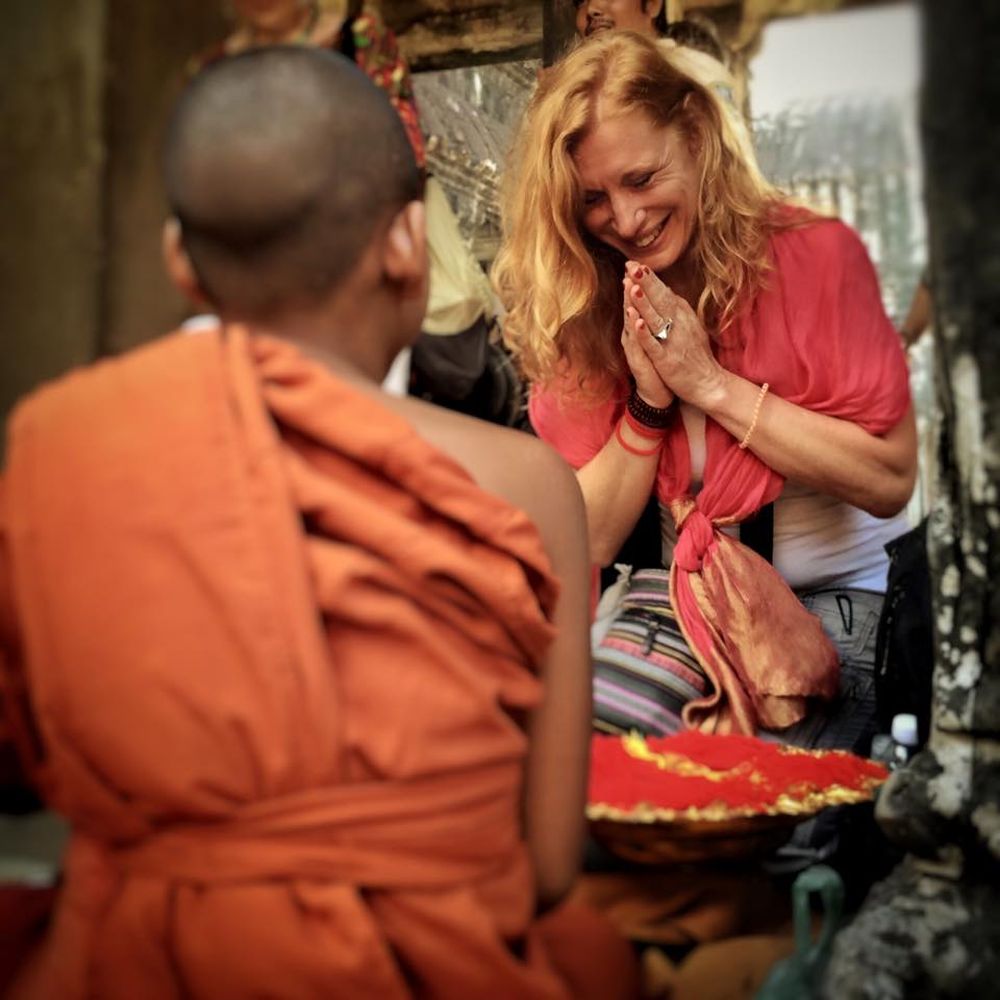 All this had to be handled by the women in leadership roles, including Lenka Henebergová from the Rector’s Board and Vice-Dean Andrea Hudáková of the Faculty of Arts. It was also a strong wish of mine for the parents of the victims to appear in the documentary, too, and for them to share their thoughts with me. I was in contact with six families who wanted to share at least a fragment of their memories or their experiences from the healing process following the death of their loved ones. I wanted there to be a spiritual level in the film. In the film I also speak to a Catholic priest, Marek Orko Vácha; the aim was to ask him about where people can find strength after such an event.
All this had to be handled by the women in leadership roles, including Lenka Henebergová from the Rector’s Board and Vice-Dean Andrea Hudáková of the Faculty of Arts. It was also a strong wish of mine for the parents of the victims to appear in the documentary, too, and for them to share their thoughts with me. I was in contact with six families who wanted to share at least a fragment of their memories or their experiences from the healing process following the death of their loved ones. I wanted there to be a spiritual level in the film. In the film I also speak to a Catholic priest, Marek Orko Vácha; the aim was to ask him about where people can find strength after such an event.
You are a graduate of Charles University yourself. Isn’t this too personal a topic for you? How do you maintain professional distance from such a tragic event?
Well, this tragedy is a personal issue for every one of us: all of us went to a school where we all felt safe. As I see it, this has a personal impact in that this could have happened anywhere and to anyone. In addition, all the victims were exceptional people, with goals in life, with many ideals and talents…
I am also affected by this, too. And what’s more, when you want to make a documentary that will touch the viewer, filming must become a personal thing for you. You just put yourself into it, you root for your beloved “heroes”, you empathise with them, you accompany them for part of the journey, you think about them, you write to them, a bond develops between you. Not only do they open up to you, but you also open up to them, you give each other what is needed at that moment. The film is personal. And as far as Charles University is concerned, now I am especially proud that I received my master’s degree at the Carolinum.
When will the documentary be shown?
The film will be broadcast on Czech Television on 21 December. During every second of filming, I sought to tell the whole story as sensitively and truthfully as possible and with respect to all those who feature in it, even if they are now watching us from another place.
| Markéta Oddfish Nešlehová |
| is a graduate of the former Faculty of Journalism of Charles University. After working as a reporter and journalist for various newspapers and magazines in the Czech Republic, she later moved on to directing and screenwriting. She has filmed a number of documentaries. She is interested in Roma, ethnic issues and the Third World. |
|
This article was also published in a special issue of Forum magazine dedicated to the victims of the tragedy at the Faculty of Arts of Charles University in December 2023. The printed magazine - in both Czech and soon also in English, is available free of charge at the Rectorate and faculties of Charles University. You can read the full issue in pdf here. |


